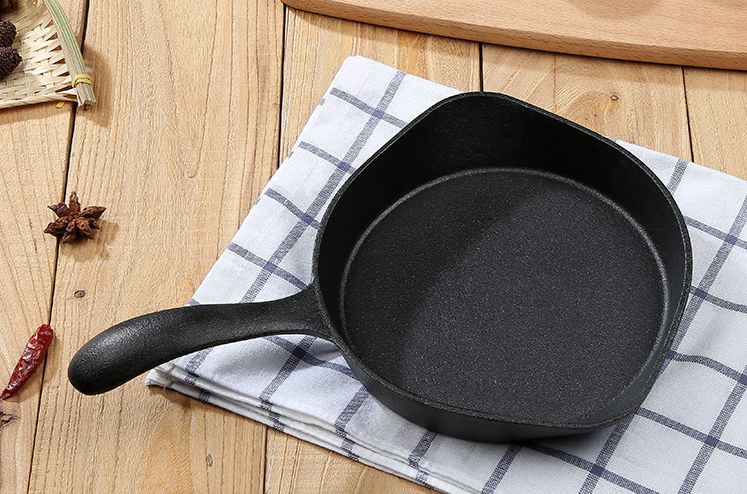With the arrival of summer and rising temperatures, many people's daily lives are almost inseparable from these key words: watermelon, ice cream, shaved ice, all kinds of cold drinks, barbecue, fried skewers, hot pot ...... And air conditioning!
However, behind such a pleasant and beautiful summer life, many friends can not escape the torture of "diarrhea".

When it comes to diarrhea, most people will choose to put up with it, carry it, take some small medicine, and just pretend that nothing is wrong, but do not know that a small diarrhea, in fact, can also involve a lot of health problems.
So why are our stomachs so weak in summer? Is it really just bad food? What can we do to improve our stomach and intestines if we want to get better?
Why do some people get diarrhoea easily?
Are there people around you who eat together and everyone else is fine, but as soon as they drink something cold or eat something spicy, they tend to get diarrhoea and keep running to the toilet? They often explain this by saying that it is probably because they have a bad stomach or have eaten something bad. But is the cause of diarrhoea really that simple?
01 Your intestines are too "sensitive"
Many people are prone to diarrhoea mainly because their intestines are sensitive and when they eat something, it can easily cause symptoms such as stomach pain, discomfort, farting and diarrhoea. The medical term for this condition is irritable bowel syndrome. Simply put, it is a condition in which the intestines move too quickly or go into spasm, causing abdominal pain, bloating and diarrhoea. In addition, diarrhoea is also related to the flora in our intestines. Our intestinal tract contains a large number and variety of flora, generally more beneficial bacteria and less harmful bacteria, and the flora is in a relatively "balanced state". However, when stimulated by hot and cold, spicy and greasy food or overwork, the intestinal flora can easily become imbalanced, resulting in symptoms such as abdominal pain, diarrhoea and constipation. For those who suffer from irritable bowel syndrome, it will be even more difficult to suffer from this stimulation.

02 The gut can get "angry" if you don't watch what you eat and drink
In addition to the fragility of the stomach and intestines, poor lifestyle habits are also a major factor affecting the health of the stomach and intestines. Especially in summer, when the weather is hot, everyone likes to eat cold food, while eating hot pot, hot and spicy hotpot, big plate chicken, steak, sashimi, Hunan cuisine, Cantonese cuisine ....... You can't help but order a few cold drinks. This combination of hot and cold eating behavior can easily trigger rapid bowel movement and thus diarrhea. Of course, there could also be problems with the food itself. Unclean, spoiled or overnight food contains a variety of bacteria and toxins that can affect our gastrointestinal health once we eat them.
03 Some bad tummies are not that simple
In fact, it's not just eating bad food that can cause diarrhoea, bad moods can also cause diarrhoea. Simply put, there is a structure in our gastrointestinal tract that is separate from the central nervous system and interacts with the brain. When our brain produces bad emotions such as stress, anxiety and anger, these emotional signals are transmitted to the gastrointestinal tract through the "brain-gut axis", which affects the peristaltic function of the gastrointestinal tract, resulting in symptoms such as indigestion and diarrhoea. In addition, frequent diarrhoea can also be a sign of cancer, as diseases such as stomach, liver, bowel and pancreatic cancer are often associated with diarrhoea.
How to tell if diarrhoea is normal
1. Whether weight fluctuates greatly within a short period of time: rapid weight loss, loss of appetite, weakness due to frequent diarrhoea.

2. Any change in bowel habits: a marked increase or decrease in the number of bowel movements, alternating constipation and diarrhoea, mucus and blood in the stool, red or black symptoms.
3. Any adverse reaction in the digestive tract: repeated diarrhoea, accompanied by nausea and vomiting, acid reflux, sudden bloating and abdominal pain, indigestion and other symptoms.
In cases such as the above, it is important not to delay any further. It is advisable to seek medical advice to identify the cause and prescribe the right medication.
Popular Articles
-
Can consistent exercise prevent osteoporosis? Pay attention to these 5 points to be effective!

-
 Gravity-type spice spout, no waste
Gravity-type spice spout, no wasteJun 08, 2025
-
 How much does the world's largest whale weigh?
How much does the world's largest whale weigh?Jun 08, 2025
-
 Working out and not working out are two completely different lives.
Working out and not working out are two completely different lives.Jun 08, 2025
-
 Home goodies|These home goodies, are super cheap
Home goodies|These home goodies, are super cheapJun 08, 2025
-
 Excellent kitchen supplies recommended to give you a sense of well-being when cooking
Excellent kitchen supplies recommended to give you a sense of well-being when cookingJun 08, 2025







Comments
0